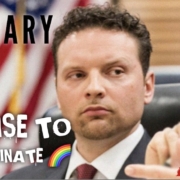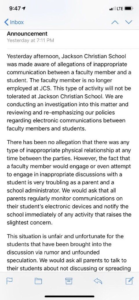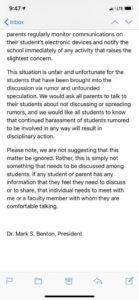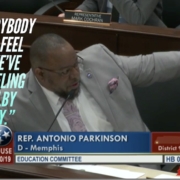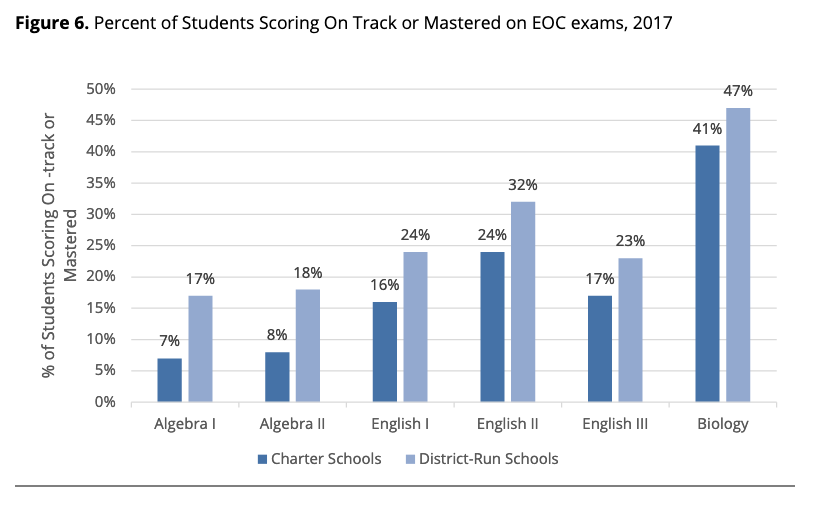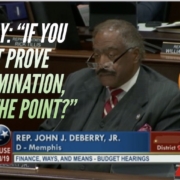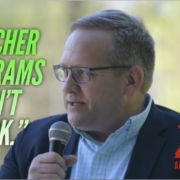Did Rep. Doggett Vote For The Anti-LGBT Adoption Bill Without Knowing What Was In It?
“If passed, these bills would allow state contractors who provide taxpayer-funded adoption and foster care services to refuse to make child placements with qualified, loving families if the family doesn’t share all of the agency’s religious beliefs. Under these proposals state-licensed child-placing agencies would be allowed to disregard the best interest of children and turn away qualified Tennesseans seeking to care for a child in need.
This would include LGBTQ couples, interfaith couples, single parents, married couples in which one prospective parent has previously been divorced or other parents to whom the agency has a religious objection.”
Apparently this is confusing to some legislators.
Jessica Yokley, a Lawrence County resident who ran against Doggett in 2018, posted on Facebook that she spoke with Rep. Clay Doggett (R-Lawrenceburg) yesterday, who seemed to not understand that the bill would allow adoption agencies in receipt of taxpayer funds to discriminate without fear of losing government contracts.
From Yokley’s post:
“Rep. Doggett called me yesterday. He stated his support of this bill was related to business owners having liberty and that this bill does not apply to entities who use tax dollars which is why he supported it. Rep. Doggett said he would not support the bill if it included entities who receive tax dollars or facilitate adoptions for children in state custody. He has already voted for the bill in Judiciary Committee. The fact is, not only does the bill NOT EXCLUDE entities who take tax dollars, it specifically allows the organizations to receive them!
You can read this for yourself in Paragraph C of the bill below. I have also sent this to Rep. Doggett so that he can see I am speaking the truth.”
Yokley then includes the text of the bill in her post, which you can read in its entirety here.
In the comments underneath the post, another Lawrence County resident posts an excerpt of her exchange with Doggett in which he says he’s “looking into it”… which is concerning since he already voted FOR the bill in committee.
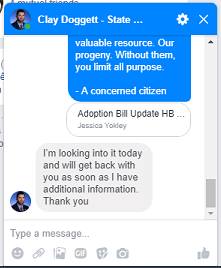
This begs the question – how many other bills is Doggett voting on without understanding? And how many other Tennessee legislators are voting to allow discrimination with taxpayer dollars without even knowing that’s what they’re doing?
Whether or not you agree with the policy, we should all be able to agree that voting on a bill without understanding the fundamentals of what’s in it is a problem. Lawrence County residents are well within their rights to ask Doggett how that could be the case.

To hear more about the bill and why it’s “bad for kids”, watch our video from last week HERE, or check out this other post from Yokley, an adoptive parent herself, which initially called out Doggett and started their dialogue, including:
“How dare you risk a child’s chance at a stable home.”
And here’s more on the ramifications of the bill from HRC:
Preliminary findings from HRC and Clark University’s National Foster Care and Adoption survey found that:
- Eighty-eight percent of LGBTQ people living in Tennessee are considering welcoming a child into their home via adoption or foster care in the future;
- Further, 92 percent fear they will be discriminated against because they are LGBTQ while pursuing adoption or foster care;
- Eighty percent have potential concerns about finding an LGBTQ-inclusive adoption or foster care agency in their city; and
- Sixty-seven percent would be less likely to pursue adoption and foster care if a law allowing state-sanctioned discrimination was on the books in Tennessee.
These statistics are alarming, especially when the Tennessee legislature continues to push these harmful bills that ultimately lessen the pool of qualified foster and adoptive parents. Children should not be forced to age out of foster care without a family connection, or wait indefinitely in foster care when qualified families are ready to adopt or foster the child. This legislation exacerbates the problem and leaves more and more children waiting for forever homes.
If you agree that this bill is bad for kids, holler at Doggett or your reps.
The Holler has reached out to Doggett for comment.





